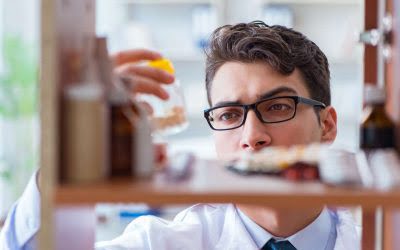Pair it with water or have non-alcoholic beverages in between glasses. Limit your intake to recommended levels, typically one glass for women and two for men. Dehydration occurs when there is a significant loss of water from the body. Alcohol consumption can contribute to dehydration by increasing urine production and leading to fluid loss. However, the diuretic effect of alcohol varies depending on the individual and other factors such as consumption rate, hydration levels, and personal tolerance. Red wine contains about 85% water, which can aid hydration to some extent.
Tips for Enjoying Alcohol While Maximizing Hydration
While the amount of alcohol you consume is the main determinant of how dehydrated you’ll eventually become, you’re better off starting a drinking session well hydrated as opposed to already dehydrated. When you lose too much water without properly replacing it, you become dehydrated. Dehydration can cause mild symptoms like headache, dry mouth, dizziness, and fatigue, or severe issues like damage to the brain, heart, kidneys, and even death (1). A vodka with soda is likely more hydrating than just a shot of vodka because you’re consuming more fluids from the soda. But once you introduce alcohol into your system, you urinate more, and the mechanism that normally prevents excessive urination—anti-diuretic hormone—is inhibited, which can lead to dehydration. But that doesn’t mean you shouldn’t enjoy an adult beverage or two from time to time.

Ways to Stay Hydrated While Drinking Alcohol
One standard drink, according to American Addiction Centers, should contain around 0.6 ounces of pure alcohol. You can get that amount from 12 ounces of beer with 5% alcohol, 8 ounces of malt liquor with 7% alcohol, one shot (or 1.5 ounces) of hard liquor with 40% alcohol, or 5 ounces of wine with 12% alcohol. Having a few drinks can be fun, but feeling dehydrated or hungover is not. It’s up to you to decide if the pleasures of alcohol are worth the potential next-day effects. While the body’s intestines rapidly absorb alcohol, it is metabolized much more slowly.
- So that espresso martini or Irish coffee might end up making you need the bathroom.
- One of the most common factors is drinking alcohol on an empty stomach.
- But, as Lindsey Pfau, M.S., R.D., points out, just one beer, for example, also has a lot of non-alcoholic fluids, which will help lessen the dehydrating effects of one beer.
- We have deliberately chosen commercially available drinks to increase the practical applicability.
1. Participants
- “That’s pretty close to those hangover symptoms, right?” asks Brigitte Zeitlin, M.P.H., R.D., C.D.N., and owner of BZ Nutrition.
- It is very important for an individual to be aware and know about the signs and symptoms of alcohol-induced dehydration and how to avoid it.
- Research from 2017 found that people with diabetes who had 3 days of low water intake had an impaired blood glucose response.
- Before your night out, make sure you have a good meal with plenty of carbs, such as rice, pasta, or potato.
- Beverages with lower alcohol content, such as beer, did not appear to have this effect.
“We’re seeing a huge decrease in athletic performance and fatigue that’s caused by the lack of hydration.” Alcohol can damage the lining of the intestines, which impairs the absorption of essential nutrients such as magnesium, calcium, potassium, and zinc. In addition, alcohol can be highly addictive, and excessive or prolonged alcohol use can lead to alcohol dependency. Alcohol is typically cleared from the body within a few hours, but Substance abuse that doesn’t mean your body re-enters ketosis straightaway. Ethanol is typically made by fermenting high-carb grains or fruits such as sugar cane and grapes. However, not all carbohydrates and sugars are broken down during the fermentation process, leaving residual carbs in the final product.
Which Alcohol is Most Dehydrating?
But those amounts are based on specific concentrations of alcohol by volume, or ABV. ABV varies a lot, and therefore so does a drink’s potential for hydration. A 12-oz beer with 5 percent ABV is going to be far less dehydrating than the same size beer with 12 percent ABV, for instance. While red wine does not inherently dehydrate you, excessive consumption in hot weather can increase the risk of dehydration due to the combined effects of alcohol and heat. Dehydration can cause symptoms such as thirst, dry mouth, and fatigue.
Does Red Wine Really Cause Dehydration?
To get a better handle on your hydration levels, White recommends keeping a water log. “Everyone tracks food. How often do we track our water intake?” he asks. Juices and sports drinks are also hydrating — you can lower the sugar content by diluting them with water. However, what’s true for everyone is that larger amounts of alcohol always cause greater dehydration than smaller amounts. What’s also true for everyone is that even mild dehydration slows the metabolism, which leads to weight gain. Because beer contains less alcohol, it is less dehydrating than wine or other liquor, and wine is less dehydrating than spirits, with one important caveat.
Alcohol begins to build up in your bloodstream

Let’s find out and get a little background on why alcohol dehydrates you in the first place. Alternating alcoholic drinks with water helps counteract the diuretic effect of alcohol. While any kind of alcoholic drink will dehydrate you to at least some extent, those with higher alcohol content will cause more dehydration. These are all over one-third alcohol in total content and thus are more likely to dehydrate you.
2. Urine Output
- She developed and reviewed various meal plans, books, slideshows, and online tools, and oversaw the creation of more than 500 unique recipes.
- While ethanol doesn’t contain carbohydrates and technically won’t impact your blood glucose levels, alcohol still affects ketone production.
- The easiest way to do this is to stop dehydration before it starts — and, no, that doesn’t mean you have to give up happy hour altogether.
- “Alcohol inhibits the release of vasopressin, or ADH, the antidiuretic hormone,” says San Diego-based Taylor Graber, MD, a resident anesthesiologist at the University of California San Diego.
- Don’t assume that a single glass of wine will overly dehydrate you, but keep in mind that wine is generally dehydrating compared to other alcoholic beverages like beer.
However, it is important to note that the diuretic effect of alcohol can still outweigh the hydrating properties of wine, especially if consumed in excess. It is recommended to drink water alongside wine to maintain proper hydration levels. Staying adequately hydrated is crucial, regardless of whether you are enjoying a glass of wine or not. One positive aspect of red wine is its potential health benefits. Studies suggest that moderate consumption of red wine may improve heart health and reduce the risk of certain diseases.

Sleep deprivation has is wine dehydrating been linked to obesity, metabolic diseases, weak immune defenses, and hormone imbalances, and may increase your risk of heart disease and cancer. If you are concerned about your alcohol consumption, it’s crucial to consult with a healthcare professional, therapist, or addiction counselor to assess your situation and find appropriate treatment options. To get back into ketosis faster, it’s best to strictly limit your net carb intake, drink plenty of water, engage in physical activity, and consume healthy fats and medium-chain triglycerides (MCTs). Consuming alcoholic drinks can stop you from achieving successful keto dieting results, even if they aren’t high-carb. While pure alcohol, or ethanol, is carb-free, most alcoholic beverages contain carbs.
